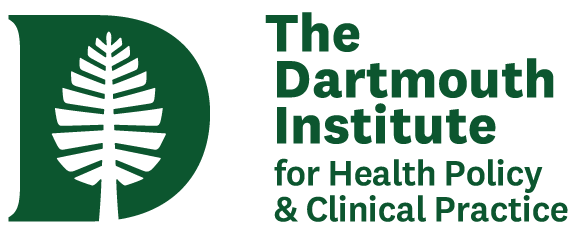Bio
Al Mulley is the managing director of the Institute’s Global Health Care Delivery Science Program. The program is dedicated to forging partnerships around the world to build the capabilities essential to achieving sustainable health care economies. Prior to his appointment at Dartmouth, he was at Harvard and Massachusetts General Hospital, where he served as chief of general medicine for nearly three decades. In the past, his clinical training and research interests have spanned from intensive medical care to the integration of primary care and population health, always with a focus on the quality of decisions made, whether it’s from the frontlines of care to the leadership level of health systems. Mulley is the founding editor of the text, Primary Care Medicine, with the eighth addition currently in preparation. He is a member of the National Academy of Medicine and serves as a visiting professor and/or Fellow in multiple countries, including the United Kingdom and China.
He holds an A.B. from Dartmouth College, an MD from Harvard Medical School, and an MPP from Kennedy School of Government, Harvard University.
Published Research
Bardach SH, Perry AN, Cavanaugh ET, Mulley AG Jr
Am J Med Qual|2024 Mar-Apr 01
Recommendations from the Salzburg Global Seminar on Rethinking Care Toward the End of Life.
Bangerter LR, Griffin JM, Eagan A, Mishra M, Lunde A, Roger V, Mulley A, Lotherington J
Int J Qual Health Care|2018 Jun 1
New approaches to measurement and management for high integrity health systems.
Mulley A, Coulter A, Wolpert M, Richards T, Abbasi K
BMJ|2017 Mar 30
Trustworthy guidelines - excellent; customized care tools - even better.
Elwyn G, Quinlan C, Mulley A, Agoritsas T, Vandvik PO, Guyatt G
BMC Med|2015 Sep 1
Mental healthcare in low and middle income countries.
Drake RE, Binagwaho A, Martell HC, Mulley AG
BMJ|2014 Nov 25
Courses Taught
PH 177: Independent Integrated Learning Experience (I-ILE) Part 1
Over three terms – Fall, Winter, and Spring, the Independent ILE experience guides each student to develop an original, individual project on a topic they choose that brings together concepts, skills, tools, and knowledge gained from all TDI course work.
The three-course sequence (PH 177 - PH 178 - PH 179) results in a student presenting their own original research proposal, manuscript, or policy paper. During the first course in this three-course sequence, each student will refine a topic for an original project and develop a clear, feasible, answerable, research question or approach for a public health intervention. In the subsequent terms, this scholarly question will be operationalized as a grant proposal for research, a scientific manuscript, or a policy paper.
PH 178: Independent Integrated Learning Experience Part 2
Over three terms – Fall, Winter, and Spring, the Independent ILE experience guides each student to develop an original, individual project on a topic they choose that brings together concepts, skills, tools, and knowledge gained from all TDI course work.
The three-course sequence (PH 177 - PH 178 - PH 179) results in a student presenting their own original research proposal, manuscript, or policy paper. During the second course in this three-course sequence, each student will execute a work plan that results in a solid first draft for their project in the form of a grant proposal for research, a scientific manuscript, or a policy paper.
PH 179: Independent Integrated Learning Experience Part 3
Over three terms – Fall, Winter, and Spring, the Independent ILE experience guides each student to develop an original, individual project on a topic they choose that brings together concepts, skills, tools, and knowledge gained from all TDI course work.
The three-course sequence (PH 177 - PH 178 - PH 179) results in a student presenting their own original research proposal, manuscript, or policy paper. During the third course in this three-course sequence, each student will complete their work plan and present a final grant proposal for research, a scientific manuscript, or a policy paper for their research topic. They will also consider the longer-term applications of what they have learned during the course in other areas of interest.
PH 106: Policy for Clinicians
The premise of this seminar is that health policy is all-too-often poorly informed by what happens at the frontlines of care, including the core clinical tasks of prevention, diagnosis, and treatment - and the way these tasks relate to nonmedical services that contribute to health and wellbeing of people and populations. This seminar will explore how clinicians and others who understand the complex nature of the tasks that comprise clinical practice can play a more constructive and influential role in policy formulation.
PH 106 will focus on policy implementation in the US (the ACA in 2010) and in the UK (HSCA in 2012), respectively the largest market-driven and state-funded health care economies in the world. We will examine design principles that emerged from Dartmouth-sponsored Global Seminars. Essential capabilities needed to implement policy reforms will be introduced together with simple measures and tools that allow policy and practice leaders to hold themselves mutually accountable for successful policy implementation.

